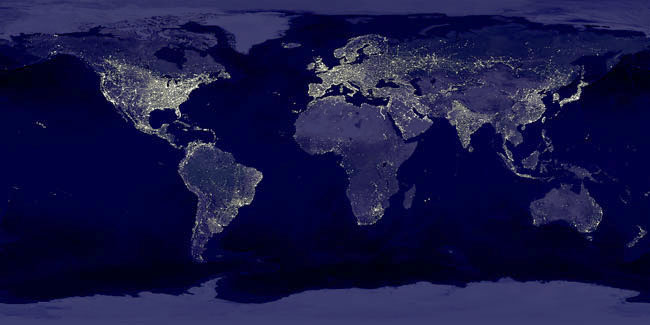You are currently browsing the category archive for the ‘Love’ category.
“Invisible and unspeakable, without a meaningful lexicon, is the world of care. No human could survive or thrive without touch, affection, nurturing, attention, compassion, validation, or empathy–yet the need for these acts of care (which are often gendered as feminine, no matter who provides them) has been subsumed into necessary invisibility by a system that depends on depriving us of the means to tend to our own lives.”
“Alienation and Intimacy”
by Corina Dross
Originally posted on Revolt, She Said.
Intimacy is often considered outside the realm of political discourse; politics is what we do out there, not what happens in our homes, our friendships, and our romances. We know this is false, but that knowledge itself doesn’t transform our lives.
We still carry shame and fear about our private needs and desires–and we look to our communities for clues about the appropriate ways to get these needs met. So when we mirror for each other the same policing and oppression we’ve learned from the larger culture, we’re failing to demand a better world for ourselves and the people we love.
The enterprise of radical relationships is to create a language that we haven’t yet learned, that can subvert the language we’ve been given, as we struggle to analyze how the alienation that permeates our world specifically functions in the details of our intimate lives. It’s important that this enterprise be public and collective, to avoid the trap of buying into the self-help book mentality–which advises us to analyze our own deepest fears and worst habits alone or with a therapist, or with a partner or best friend–but as an individual project, without agitating for the world to better meet our collective needs.
And our own worst habits are not merely ours; most likely, they arise in response to larger systems of oppression, which we all face, and which we internalize. There are multiple intersections of oppression in our lives, but let’s focus here on capitalist processes of alienation. If we look at some specific ways capitalism creates suffering–and makes this suffering appear normal and invisible–we may see parallels in our intimate lives and begin to formulate forms of resistance.
There are many cultural side-effects of the capitalist project, worth discussing in future conversations, but for now let’s start with the idea of artificial scarcity.
If we agree that capitalism shapes our world through processes that consolidate wealth, power, and resources amongst very few–creating scarcity and need for the rest of us, robbing us of time to pursue our own deepest desires and interests, time with friends and loved ones, access to healthy food and housing, access to medical care, and a thousand other necessary things, we can imagine how much pressure there is on our intimate relationships, which are supposedly outside of the public sphere, to be sites of abundance. It’s somewhat fantastical that we could expect one person (or several, depending on how we arrange our love lives) to make up for all that lack. But popular narratives reinforce this: that love will fix all our problems; that a long-lasting romantic partnership should fill all that is empty in us; that we must give to our lovers all that the world can’t.
 1) Confidence is the most attractive quality. If you love yourself, people can tell and are more likely to be interested in you. If you don’t, you could fake it, but you’ll probably only fool people who also have low self-esteem.
1) Confidence is the most attractive quality. If you love yourself, people can tell and are more likely to be interested in you. If you don’t, you could fake it, but you’ll probably only fool people who also have low self-esteem.
2) Attraction is viral. If one person is into you, others will catch on and also become interested. The opposite is also true.
3) “We want the ones we can’t have.” Being distant or unavailable usually makes someone appear more desirable, whereas if they are obviously into you and available, they may appear less desirable.
4) When relationships develop, one partner is usually more distant, while the other pursues. The greater the distance, the greater the pursuit. The pursuer may feel neglected, and the distancer may feel smothered. Often this dynamic hardens into a power imbalance, where the distancer can dictate terms. The only way back to equilibrium may be for the pursuer to stop pursuing.
5) Every relationship (not just romantic) contains a power struggle. Both elements of power-over and power-with are always present to some degree. In healthy relationships, power-with is the predominant element, whereby people work together towards common goals and develop trust. When power-over becomes the predominant element, the relationship is probably unhealthy and both people are likely to get hurt.
6) Because we live in a social system based on power-over (white supremacist capitalist patriarchy), we have each been hurt routinely and therefore carry trauma into all of our relationships. Some people carry more trauma than others due to race, class, gender, and other differences. This may cause them to have difficulty feeling safe or trusting others. In romantic relationships, if someone is experiencing trauma from past abuse, they are more likely to either:
a) seek out scenarios where they may get abused again,
or b) seek out scenarios where they can feel powerful by abusing somebody else.
7) Men, despite being privileged by patriarchy, typically are isolated, lonely, and unable to deal with their emotions. Being emotionally nurturing is perceived as feminine, therefore it is very difficult for hetero male friends to support one another without homophobia shutting them down. This can make hetero men feel desperate to find a woman who will take care of them. If they find one, they may dump all their emotional baggage, which they don’t know how to unpack, onto her. She then becomes the only person who understands him, even better than himself, making him very dependent on her.
8) Love is really, really difficult while living under white supremacist capitalist patriarchy. But we can’t wait until the revolution to love others or be loved. Love is the quality that most makes us human. So we need to constantly struggle for love at both the personal and political levels, which are inextricably linked.





Recent Comments